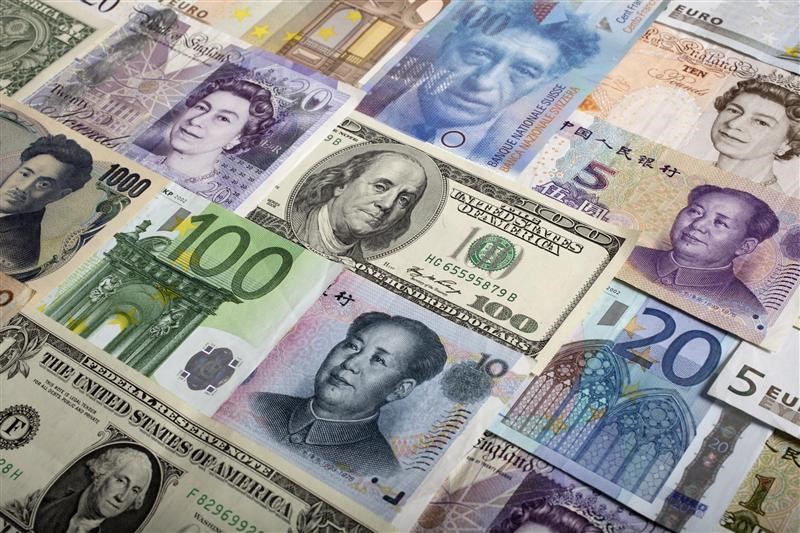(Repeats Friday story without changes)
* Mining restarting in South Africa, Colombia
* Pakistan eases restrictions for construction sector
* Malaysia exempts palm oil industry from lockdown
* Emerging nations sorely need dollars
By Helen Reid and Tanisha Heiberg
April 17 (Reuters) - From Africa to Asia and Latin America,
emerging countries disproportionately bruised by the COVID-19
pandemic are allowing some key industries to start back up in a
bid to soften the economic blow.
This tentative unlocking highlights the balancing act for
developing nations as they seek to protect their people while
averting an economic collapse some fear could do more damage
than the disease itself.
While academic study of COVID-19 containment policies is in
its infancy, one model by Yale economists argues social
distancing measures deliver far fewer benefits, at much greater
economic cost, in poorer countries.
"They're battling competing tensions. It's being framed as
lives versus livelihoods," said Ronak Gopaldas, director of
Africa-focused consultancy Signal Risk.
Unlike wealthier economies, developing countries cannot
afford to spend trillions of dollars protecting people and
businesses from the economic fallout of the pandemic. That has
prompted some to start reopening key sectors.
"What's clear is that lockdowns can't go on forever and
they're having to strike a balance between safety and
productivity," said Gopaldas.
South Africa announced on Thursday it will allow mines to
operate at 50% capacity during its lockdown, allowing workers to
be called back gradually. Mining contributed 360.9 billion rand ($19.74 billion),
around 7% of GDP, to the economy in 2019. Amid mass
unemployment, it provides more than 450,000 jobs.
Getting mines back to full production will take weeks, said
Jacques Nel, of research firm NKC African Economics. But opening
them early is essential.
"Some countries are going to recover quicker than others, so
you have to position yourself as one of the more attractive ones
when this blows over," he said.
SHOCK ABSORBERS
Other governments are making similar calculations, generally
favouring large employers or generators of crucial foreign
exchange. JPMorgan calculates that emerging market FX reserves
fell by more than $190 billion in March. "They won't be able to borrow anymore," said Wayne Camard,
an ex-IMF official in Africa and Latin America who now heads the
Camard Group, a business intelligence consultancy. "Mining and
agricultural commodities are the main foreign exchange earners
for a lot of developing countries."
Investors pulled a record $83.3 billion from emerging market
stocks and bonds in March. At the same time, borrowing costs
have soared, making it effectively impossible for many countries
to raise funds on international capital markets.
Malaysia has allowed its palm oil industry -- the world's
second-biggest -- to operate during a six-week lockdown. Its
electronics industry, which produces nearly 8% of the world's
semiconductors, is running on a third of its normal workforce.
Colombia, the world's fifth-biggest coal exporter, allowed
coal producer Drummond to partially restart on April 9.
Coal is Colombia's second-largest source of foreign
exchange, and royalties paid by coal firms are "fundamental" to
coping with the health emergency and reviving the economy, the
energy ministry told Reuters.
Governments that cannot afford to replace workers' lost
incomes are under pressure to reopen labour-intensive sectors.
Pakistan on Tuesday extended its lockdown by two weeks but
said some industries, starting with construction, would reopen
in phases. "If the construction sector can be stimulated in these
testing times, it can prove to be an important shock absorber,"
said Sakib Sherani, chief executive of Islamabad-based economics
research firm Macro Economic Insights.
Construction and related sectors account for about 8-10% of
Pakistan's GDP, he estimated, and 10-12% of jobs.
Ugandan President Yoweri Museveni is keeping open factories,
which he called "the life-blood of the country", provided
employees live in on-site accommodation. Manufacturing employs
10% of the formal workforce.
TARGETED MEASURES
Other countries have implemented targeted quarantines to
isolate critical industries from the pandemic.
Nigeria, Africa's top crude producer, is allowing staff to
travel to oilfields only when essential in a bid to avoid
infections that could force a broad shutdown.
In Chile, where mining constituted 50% of exports last
quarter, the government's preference for targeted, local action
has helped keep large mines of Atacama and Antofagasta open.
The northern desert provinces account for most of Chile's
copper and lithium output but fewer than 2% of its COVID-19
cases as of April 12, health ministry figures showed.
But in an interconnected world, damage limitation policies
can only go so far.
Mexico's president last week said the auto sector, which
contributes 3.8% of GDP, would only reopen when the U.S.
industry ramps up again. Developing countries also have large informal sectors which
are harder to measure and lack financial safety nets.
In Jakarta, Indonesia's capital, COVID-19 restrictions ban
motorbike taxis from carrying passengers, threatening the
livelihood of thousands who work for ride-hailing apps.
"We pleaded for the president's help," said Igun Wicaksono,
who heads "Garda Nasional", an association of 100,000 motorbike
taxi drivers.
"Of course we're worried and we're scared. But if we stay at
home, we won't have food."
($1 = 18.2778 rand)
<^^^^^^^^^^^^^^^^^^^^^^^^^^^^^^^^^^^^^^^^^^^^^^^^^^^^^^^^^^^
FX reserves in Latin America https://reut.rs/3bgHDQH
FX reserves in EM Asia https://reut.rs/2VcVpya
FX reserves in Africa https://reut.rs/2RGp68E
^^^^^^^^^^^^^^^^^^^^^^^^^^^^^^^^^^^^^^^^^^^^^^^^^^^^^^^^^^^>
